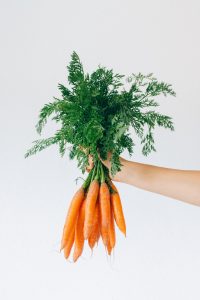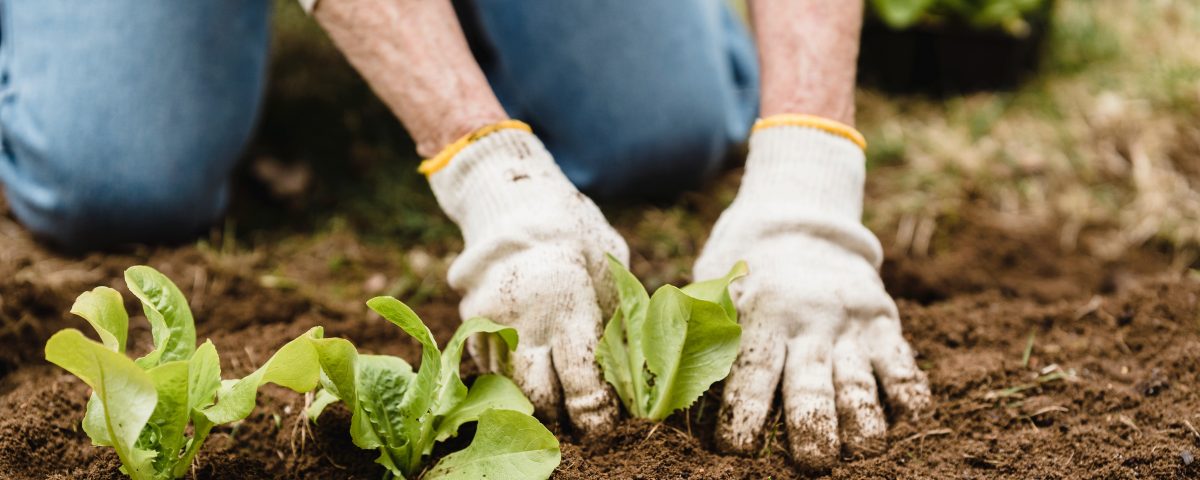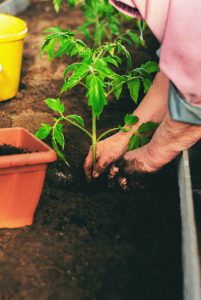Grow Your Own

Editor’s Picks: Rustic Retreats
25th July 2023
National Book Lovers Day
25th July 2023In a time when we’re being a bit more conscious of our pennies and carbon footprints, National Allotment Week is a great reminder to roll up those sleeves and get stuck in (quite literally).
Who doesn’t love the idea of being self-sustainable - Waking up in the morning and strolling out to your garden and plucking fresh oranges from your tree, collecting the eggs from your chicken coop on your way back to the kitchen which is filled with the comforting aromas of the soft loaf of bread you baked last night. Of course, the reality of most morning routines tends to be hitting the snooze alarm once or twice, getting out of bed and rushing to prepare the breakfasts and lunches for the day, getting toothpaste down your top and catching your belt loop on the door handle as you rush out the door. The last thing on our minds is our vitamin C intake for the day. But there’s no harm in manifesting the life we’re after right?
So let’s just start with baby steps as it’s all about making those 1% improvements each day to achieve the overall goals. Consistency is key especially when it comes to your veg growing.
Don’t be put off if your home isn’t equipped with the soily starter from mother nature, there are many alternatives for those with low-maintenance outdoors. Now, before we get into it, we first need to cover some ground rules before reaping the rewards of our first harvest.
The Basics
It’s exciting trying something new, the prospects of what we can grow and the thrill of finally including your produce in a home-cooked meal but there is a bit of work to get to that point. Start small - it’s better to be over the moon with what you’ve produced in a small garden than overwhelmed and fed up with the commitment of a larger one. When selecting your starter seeds, be sure to take note of which season they are best grown in – this will be displayed on the seed packet. Remember, some vegetables can take months to grow and need to be sown during the winter months to be ready for spring/summer. Lastly, be sure to locate a good area for your vegetable patch, pots or planter – this could be a sunny window sill or a sheltered sunny area outdoors.
What to Grow
If you’re new to the veggie-patch life, then opting for a low-maintenance vegetable is a good place to start. Radishes, chives, potatoes, courgettes, rocket, chillis and beetroot have a quick turnaround and suffer from fewer pests and diseases. Tomato plants are a great staple for any household starting out their veg growing journey. If you find that your designated growing area is a bit more open to the elements, a tomato bush is more robust and sturdy than a tomato plant, so it can withstand those windy days. Of course, grow what you like to eat but pay attention to the difficulty level of growing certain crops. Some vegetables need a little more work, so postponing the growth of an aubergine, for example, may have to wait until your second year of veg-growing as they’re known to be quite tricky.
![]()
Where to Grow
Contrary to popular beliefs, you don’t need a large garden or an allotment to start your new hobby. Simply designating a small area of your garden for your veggie patch is perfect or you could even grow your goods in a lovely window box or even hanging baskets. However, one thing must stay prevalent - sunlight. Most vegetables need 6-8 hours of sunlight a day in order to grow, if you have a shadier space then opt for vegetables and herbs that can tolerate it such as kale, spinach, chives and thyme. Carrots, radishes and beetroots can also cope with lower sun exposure, just ensure they are getting at least 4 hours of direct sunlight a day for happy and healthy veggies.
Planters
Raised beds are a great option, not only for aesthetic reasons but it provides flexibility for the best positioning. Using planters are brilliant if you’ve got a courtyard, balcony or if the soil isn’t the healthiest as you can fill it with fresh compost. If you’d really like to get creative, car boot sales and charity shops are brilliant for finding old buckets, wheelbarrows, even sinks that can fashion quite the unique raised bed. Repurposing old pallets, decking or other wooden materials create perfect DIY planters, just head to Youtube for a tutorial and voila, your very own bespoke planter.
Allotments
We celebrate the 21st year of National Allotment Week this year on 7th – 13th August. Of course, Allotments have been around for hundreds of years but it wasn’t until after WW1 that land was made available to all instead of just the labouring poor for food growth. Today, allotments are leased from Landlords to allotment holders who pay rent, this covers water rates and general maintenance bills. Rents can vary as there isn’t anything that states how much rent should be charged but it’s usually in the region of £25 - £125 a year per plot (depending on size). It’s recommended for beginners that a good plot size is half a plot and you may need to aside about eight hours a week to tend and care for your allotment. There are 37 allotment sites in Plymouth alone spanning from PL2 postcodes all the way to PL9. The name, postcodes and number of plots can be found on Plymouth.gov.uk/find-allotment.
Pests & Diseases
Those unwanted “guests” that keep us on our toes – pests, weeds and diseases. Unfortunately, this is something we may face at some point but arming yourself with the right strategies and knowledge should help act quickly and keep them away.
A great tip for keeping the slimy slugs off your vibrant veg is to put a copper tape perimeter around your crop – they don’t like to cross it! Another option is planting alliums as this naturally wards them off. Speaking of interplanting, planting marigolds along with your tomato plants are brilliant for discouraging those pesky whiteflies. Keeping your plants as healthy as can be are less susceptible to attacks. Ensure they are well fed and watered well in dry weather but also be conscious to feed the soil with good compost which promotes good root systems and healthy growth.
Books
Let’s be honest, growing your own vegetables and herbs can be a daunting task, especially if you’re a complete beginner, which is why I’m including some book recommendations to get you started - it’s better to leave it up to the experts for this one;
Grow Your Own Veg & Fruit Bible - Carol Klein
Hosting environmentally friendly methods of growing, accompanied by practical and digestible text with helpful imagery. You’ll also find helpful tips for creating raised beds, container gardens, protecting plants and improving soil.
Crops in Tight Spots: Grow Amazing Fruit and Vegetables Wherever You Live - Alex Mitchell
As the title suggests, this is a great book for my fellow aspiring veg growers that are short of outdoor space. Catering for those with balconies, courtyards, terraces, roofs, ledges and window sills, there’s even a whole chapter dedicated to “Other Awkward Spots.”
Allotment Month by Month: Grow your own Fruit and Vegetables, Know What to do When - Alan Buckingham
The new edition of the best-selling guide offers updated recommendations and the latest advice for pesticide use. Offering a month-by-month guide, an annual overview and a “crop planner”, this book is ideal for seasoned allotment owners, urban gardens and first-time vegetable growers.

Whether you’re just starting your planting journey or you’re a seasoned veggie grower, hopefully, you’ve felt inspired to sow some seeds this weekend and enjoy the fruits of your labour … literally.





